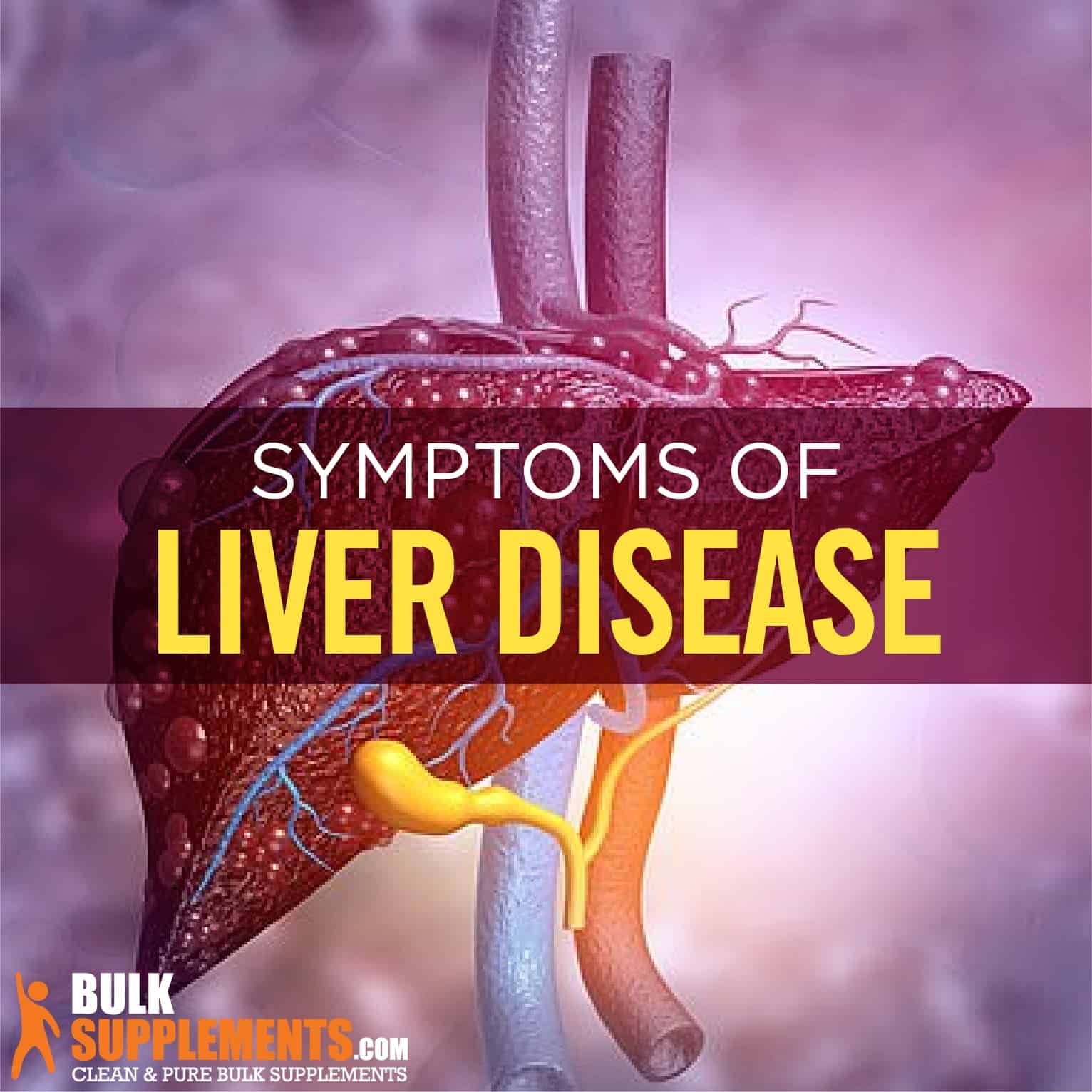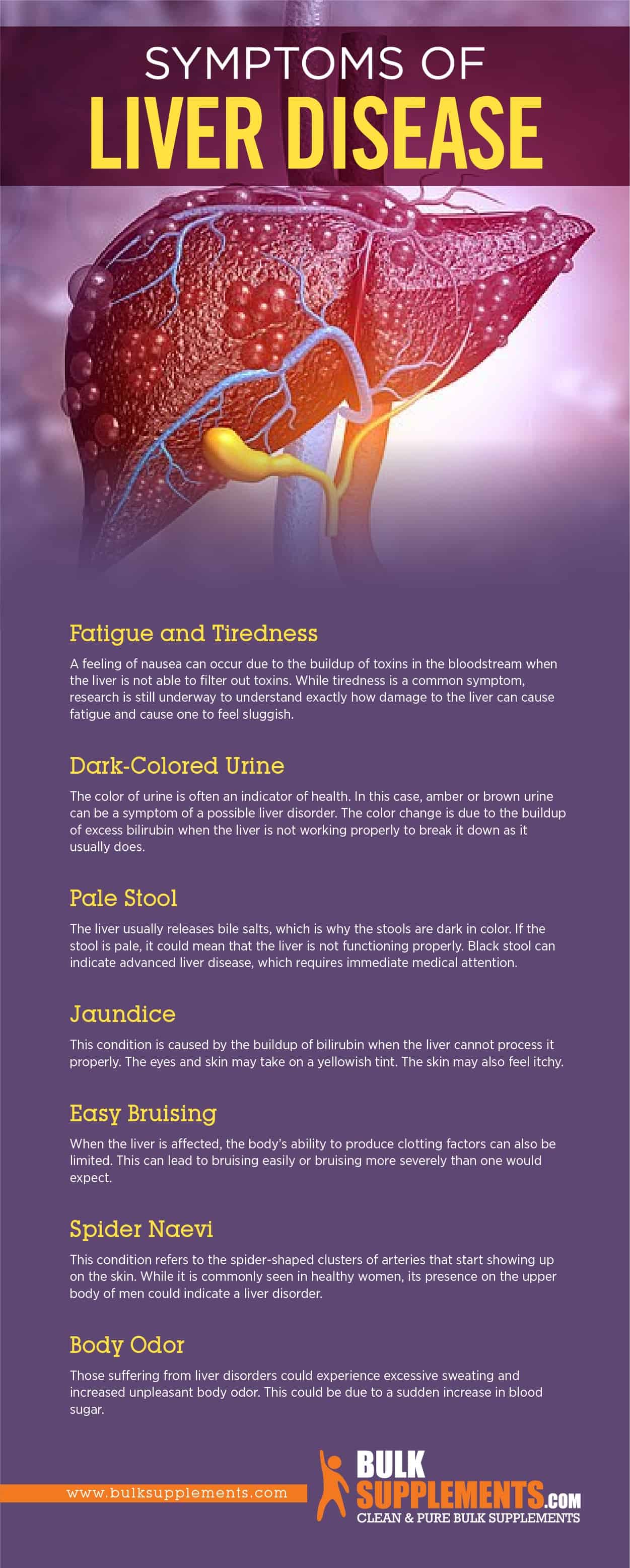Liver Disease: Symptoms, Causes & Treatment
by James Denlinger Digital Marketing Strategist
What is Liver Disease?
The liver is an important organ in the human body, located below the diaphragm and to the right side of the abdomen. Blood is filtered through the liver. Its major functions include processing nutrients absorbed from food, removing toxins from the body and regulating body metabolism.
However, several conditions could prevent the liver from functioning at its best. This includes viral infection, collection of fat, toxic damage, misuse of alcohol, cancer and iron or copper accumulation.
The most common reason for liver disease is the non-alcoholic fatty liver. Cirrhosis is usually the result of most liver issues. This usually involves intense scarring of the liver, and the organ usually declines in its performance rapidly. It often ends in liver failure.
Stages of Liver Disease
In the early stages of any liver disorder, the organ becomes inflamed. Inflammation can occur because the body is trying to fight a virus. However, prolonged inflammation could lead to bigger issues. Without immediate treatment, the liver could start to scar. This is known as fibrosis.
Cirrhosis is the scarring of the liver where the healthy tissue is replaced by hard scar tissue. This stage could lead to a variety of different health issues.
End-stage liver disease is the stage where there are signs of liver decomposition. It cannot be treated, except with a transplant. The last and most serious stage is when the liver fails, which could potentially be life-threatening.
Both adults and babies can suffer from these diseases.
Liver Disease Symptoms
The liver is an integral part of the body’s digestive system. It can even regenerate cells to a certain extent. However, repeated issues or harm could lead to inflammation, which could proceed to scarring. Scarring can change the liver’s structure and keep it from functioning properly. In most cases, the early stage of liver disease doesn’t show any symptoms. Some of the commonly experienced liver disease symptoms are listed below in detail.
Fatigue and Tiredness
A feeling of nausea can occur due to the buildup of toxins in the bloodstream when the liver is not able to filter out toxins. While tiredness is a common symptom, research is still underway to understand exactly how damage to the liver can cause fatigue and cause one to feel sluggish.
Dark-Colored Urine
The color of urine is often an indicator of health. In this case, amber or brown urine can be a symptom of a possible liver disorder. The color change is due to the buildup of excess bilirubin when the liver is not working properly to break it down as it usually does.
Pale Stool
The liver usually releases bile salts, which is why the stools are dark in color. If the stool is pale, it could mean that the liver is not functioning properly. Black stool can indicate advanced liver disease, which requires immediate medical attention.
Jaundice
This condition is caused by the buildup of bilirubin when the liver cannot process it properly. The eyes and skin may take on a yellowish tint. The skin may also feel itchy.
Easy Bruising
When the liver is affected, the body’s ability to produce clotting factors can also be limited. This can lead to bruising easily or bruising more severely than one would expect.
Spider Naevi
This condition refers to the spider-shaped clusters of arteries that start showing up on the skin. While it is commonly seen in healthy women, its presence on the upper body of men could indicate a liver disorder.
Body Odor
Those suffering from liver disorders could experience excessive sweating and increased unpleasant body odor. This could be due to a sudden increase in blood sugar.

Causes of Liver Disease
Fatty Liver
This is among the most common issues, especially when the patient also has alcohol-related issues. With the fat accumulating in the liver, it could cause the cells to enlarge or damage, leading to cirrhosis. This is also common in those who have diabetes or obese.
Cirrhosis
Cirrhosis can be caused by a multitude of things, with the most common causes being excessive intake of alcohol or a hepatitis infection. In this condition, the liver cells progressively get replaced by scar tissue, which can affect the functioning of the liver drastically and lead to end-stage liver failure.
Cancer
Many types of cancers can start from the liver. The cause behind this is usually chronic hepatitis with cirrhosis, though there are other contributing factors as well. Cancer cells from a tumor in other parts of the body could also lead to secondary tumors in the liver.
Infiltrative Liver Disease
This could include different kinds of granulomatous diseases, sarcoidosis, or metastasis of cancer in the liver.
Galactosaemia
When your body doesn’t react as expected to particular milk sugars, it can potentially harm the liver and other organs. This is an inherited disorder, and quite rare in occurrence.
Autoimmune Liver Disease
In this disorder, there is a rapid and uncharacteristic increase in immune cells. This has the power to damage the liver cells. This includes primary biliary cirrhosis, primary sclerosing cholangitis and autoimmune hepatitis. In most cases of primary biliary cirrhosis, women are affected, while with primary biliary cirrhosis it is most common to see men with this disorder.
Hepatitis
Hepatitis generally refers to the inflammation of the liver due to infections caused by particular viruses — hepatitis A to E.
Hemochromatosis
This genetic disorder allows the body to store higher levels of iron, eventually damaging the pancreas, liver and the heart.
Treating Liver Disease
The treatment for liver disease generally depends on the underlying cause and the severity of the condition. In more severe stages, hospitalization may be necessary.
Weight Loss
Those who have cirrhosis due to non-alcoholic fatty liver disease could become better if they control their blood sugar level and control their weight. It is important to note that cirrhosis of the liver cannot be reversed.
Medication
If the liver disorder has arisen due to hepatitis, it can be controlled by taking medication as it could restrict the damage to the liver cells caused due to the virus or their treatment. Medicines will also be prescribed to slow down the advancement of some types of liver cirrhosis. Medication could also work to deal with symptoms like pain, tiredness, itching and nausea.
Diet
To ensure that you don’t face malnutrition due to cirrhosis, a low-sodium, healthy diet would be prescribed. This will also prevent osteoporosis or weak bones. A low-sodium diet can also help prevent the build-up of fluid. A vitamin-rich diet can help deal with liver disorders as well. Consuming coffee has shown to have positive results as well and works to lower liver enzymes.
Quitting Alcohol
Those who have cirrhosis due to excessive alcohol intake should quit drinking. If it is not possible or if one finds it difficult to quit, your doctor could suggest an alcohol addiction treatment program. Since even the tiniest amount can be toxic to the liver, consumption should be stopped entirely.
Liver Disease Remedies and Supplements
Ginger Root
Ginger is used as a treatment for non-alcoholic fatty liver disease thanks to triglyceride-lowering properties. The presence of antioxidants can counter against the oxidants that are responsible for the issue.
As a supplement, ginger root should be taken in a dose of 1,000 mg once a day.
Dandelion Root
This supplement has been considered to be beneficial to those with liver ailments due to its ability to improve the flow of bile. Dandelion root could detoxify the liver and assist with skin and eye problems.
A dose of 1,000 mg twice a day, is ideal.
Curcumin Extract Powder
Curcumin has long been believed to help against chronic liver damage since it is said to reduce toxic oxidative stress.
Taken as a supplement curcumin extract should be taken in a dose of up to 1,000 mg once a day.
Natural Supplements
Having antioxidants, healthy fats, and complex carbohydrates in your diet can improve your liver health. Fruits, grains, olive oil, vegetables, nuts, and fish are all good for your health and especially for your liver.
Pure Milk Thistle Extract Powder
Milk thistle extract is an anti-inflammatory as well as an antioxidant, both properties may help support good liver health. Taken in a dose of 250 mg, once a day.
Omega-3 Fatty Acids
Within the obese demographic the number of those suffering from non-alcoholic fatty liver disease has increased. Consuming Omega-3 fatty acids can reduce inflammation and liver fat.
Healthy fatty acids can be added through diet or supplementation, take 3 soft gels a day.
Coffee
Consuming coffee is believed to reduce the risk of non-alcoholic fatty liver disease as the caffeine can help in breaking down the fat stored in your liver.
Living with Liver Disease
Understandably, living with cirrhosis or any other liver disease can be tough and taxing on both the body and mind. However, there are natural remedies for liver disease that is known to provide relief. While in most cases, there is no noticeable pain, although some do feel pain after eating. Liver pain is, at times confused with kidney or abdominal pain. Handling pain due to liver inflammation includes advice such as taking over-the-counter pain relievers.
The Bottom Line
There are multiple liver diseases, each of them caused due to certain conditions. The diagnosis of the underlying reason is extremely important as it will help understand the type of treatment needed. Nausea, fatigue, and change in color of urine or stool are all symptoms of possible liver disorders.
Liver cancer is also a cause for eventual liver failure. There are four stages of liver cancer, depending on whether or not the tumor has grown into any blood vessels and its size.
Yellow skin on palms and hands, rashes, and itching are common symptoms of cirrhosis and other liver disorders. Some signs that your liver is detoxing are that the person no longer feels fatigued or nauseous, doesn’t experience pain, and is feeling more healthier all-around. If the liver disorder is diagnosed and treated, the patient may increase their life span by five years.
Since the liver has the ability to regenerate, it can grow to be healthy. However, one cannot live without a liver. The last stage of liver diseases requires constant monitoring, possible surgery, and transplant.
The causes could range from non-alcoholic fatty liver disease and autoimmune diseases to inherited disorders and cancer. The best treatment is to ensure the person has the medicines prescribed regularly and follow a healthy diet. A range of supplements may help the symptoms, tied in with pain management for those who require it.
Sponsor Ads
Created on Mar 2nd 2020 17:44. Viewed 347 times.



